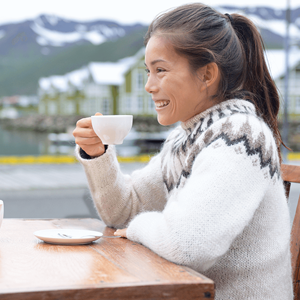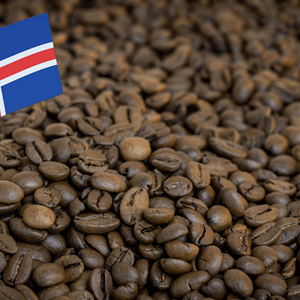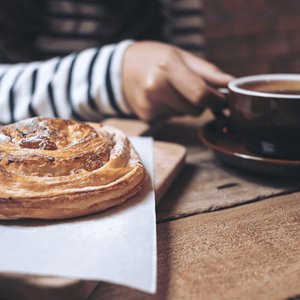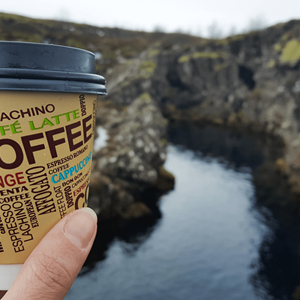Ultimate Guide To Icelandic Coffee - Iceland Car Rental

For people across the world, coffee is so much more than a drink or a caffeine boost. It’s an important part of life, and in Iceland, this is no exception. Despite the small population of Iceland, the island boasts a coffee culture that stands up there along with some of the most famous coffee-loving countries across the globe. Yes indeed - coffee is well-loved in Iceland.
From the quirky streets of Reykjavik to the more rural corners of the country, you’ll find plenty of cozy cafes and affordable restaurants with Icelanders and visitors alike huddled over a warm cup of coffee. Locals in particular put a big focus on the quality and sustainability of their beans, as well as the social rituals that are brewed into every drop.
If you’re headed to Iceland and love a morning cup of joe to pair with your breakfast, exploring the country’s coffee shops and coffee culture is something you’ll definitely want to work into your itinerary. Read on to find out more about the history of coffee in Iceland, why it’s so special, and how you weave the magic of Icelandic coffee into your own home after Iceland’s icy shores are long behind you.
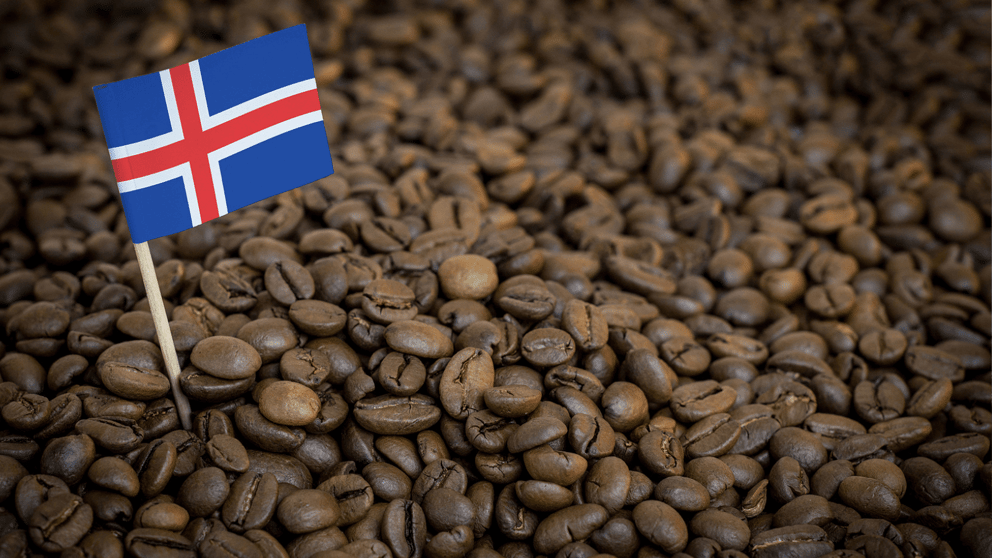
The History of Coffee in Iceland
Coffee first found its way to Iceland’s shores back in the 1700s, introduced by Danish traders during the island’s tenure as part of the Danish Kingdom. Initially, coffee was purely a luxury item and therefore only available to wealthy Icelanders. In the following century, it would become more accessible to the general population.
Over the 1800s, coffee became more synonymous with Icelandic hospitality, with people serving it to friends and guests as a sign of warmth and friendship. At the time, Icelanders would have been roasting and grinding their own beans using an old-fashioned manual process, making it a ritualistic and important part of their culture.
Throughout the 20th century, as more coffee was imported into the country and industrial coffee roasters emerged, the warming beverage developed into a staple in Iceland. Icelandic chains like Kaffibrennsla Reykjavíkur would begin to open and start producing high-quality coffee for the masses.
Now, in the 21st century, Iceland is among the world’s top coffee consumers per capita. Coffee has become an integral part of daily life with plenty of hip and quirky cafes where you can sample the goods.
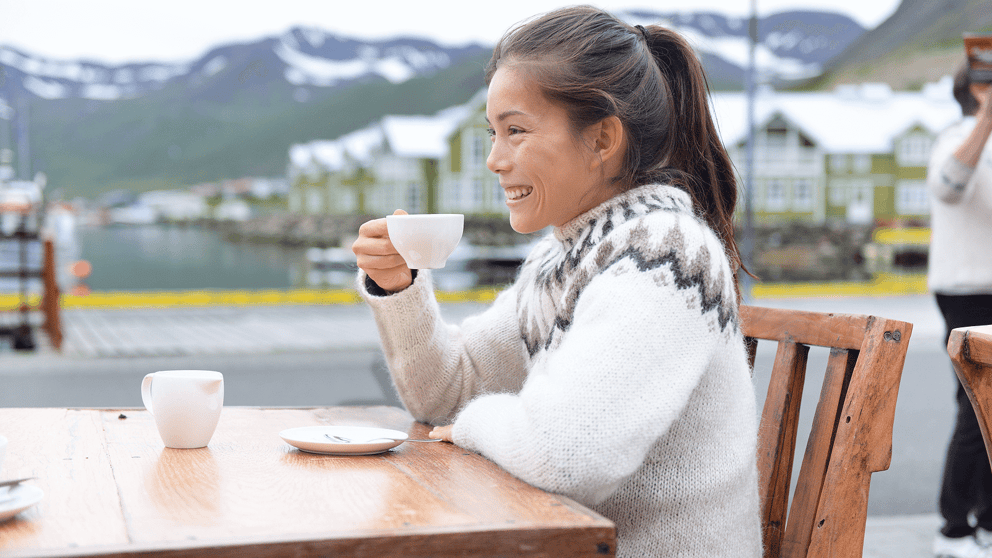
Why is Icelandic Coffee Special?
Many visitors to Iceland can’t believe just how delicious the coffee is. There are a few factors that contribute to this excellence, all of which work together to produce an unforgettable cup.
1. Sourcing High-Quality, Sustainable Coffee
High-quality coffee starts with high-quality beans. Coffee beans aren’t grown in Iceland, so everything is imported, but Icelanders are very selective about what they ship in, ensuring it’s of the best caliber. Many cafes also prioritize sustainability and fair trade when sourcing their beans, which also adds to the overall quality.
2. Pure Water
Beans may be the foundation of coffee, but you can’t brew it without water. And Iceland is known for its pristine water, which is rich in minerals and naturally filtered through layers of volcanic rock. The result is a version of water that is perfect for brewing coffee, enhancing the flavor and your enjoyment.
3. Social Rituals
Coffee in Iceland isn’t just for a morning boost, it has been woven into the fabric of everyday life. Coffee is an important part of social dynamics in Iceland and is part of a wider shared experience, like the charming “kaffiboð” (coffee parties), where families and friends join together over many cups of coffee, chat, and catch up. These gatherings also typically include delicious traditional pastries, like vínarbrauð (known as a Danish in other parts of the world) or kleinur, a knot of fried dough, similar to a doughnut.
4. No Big Coffee Chains
In Iceland, you’ll notice a distinct lack of large coffee chains like Starbucks. Instead, Icelanders prefer independent coffee shops or small, local chains that produce high-quality artisanal coffee. This focus on detail means that Iceland boasts smaller, more community-driven coffee shops, creating a more authentic and almost spiritual coffee experience.
5. Superior Milk
An often overlooked aspect of what makes Icelandic coffee so wonderful is Iceland’s dairy industry, known for its high standards and production of rich and creamy dairy products. Icelandic cows are some of the luckiest in the world, grazing on fresh, pesticide-free grass and living in one of the most tranquil landscapes in the world. This all contributes to Iceland’s superior milk products, which then makes the coffee even better! Typically, Icelandic coffee is prepared in the Italian fashion, like lattes and cappuccinos, all blended with delicious steamed local milk.
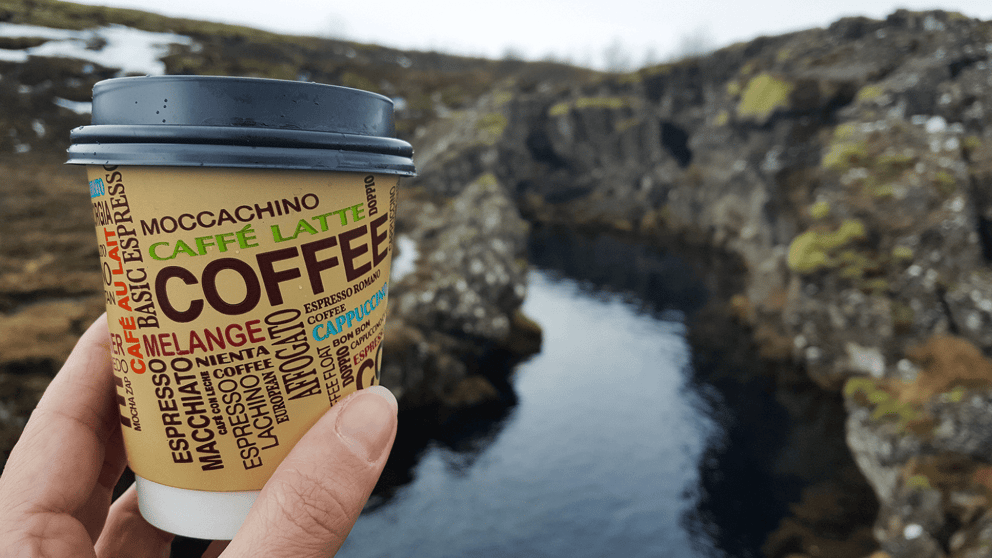
Unmissable Coffee Experiences in Iceland
Plan before you arrive to experience the best of Icelandic coffee. Throw yourself into the country’s vibrant coffee culture, sample as much as you can, and make connections with like-minded coffee lovers!
Hit Reykjavik’s Iconic Cafes
Reykjavik boasts some of Iceland’s best coffee spots, all of which offer something special and unique. Here are some of the top places you should visit while in the city.
Reykjavik Roasters - Known for its meticulously selected beans and a relaxed atmosphere. It’s a favorite amongst locals and visitors alike.
Kaffibrennslan - Located in the heart of the city, this cafe combines unbeatable coffee with charming decor that will make you feel right at home.
Te & Kaffi - A beloved Icelandic coffee shop chain, known for creating consistently excellent coffee across many locations.
Visit Icelandic Coffee Roasters
Some of Iceland’s roasters have gained recognition on the international coffee stage as a result of their dedication to both sustainability and quality. You can visit a few of these on your trip to Iceland to taste the coffee at its source!
Kaffibrugghúsið - This Reykjavik-based roaster focuses on small-batch roasting, emphasizing flavor and ethical sourcing.
Reykjavik Roasters - Also based in Reykjavik, here you can enjoy tours for an inside look at the coffee-making process.
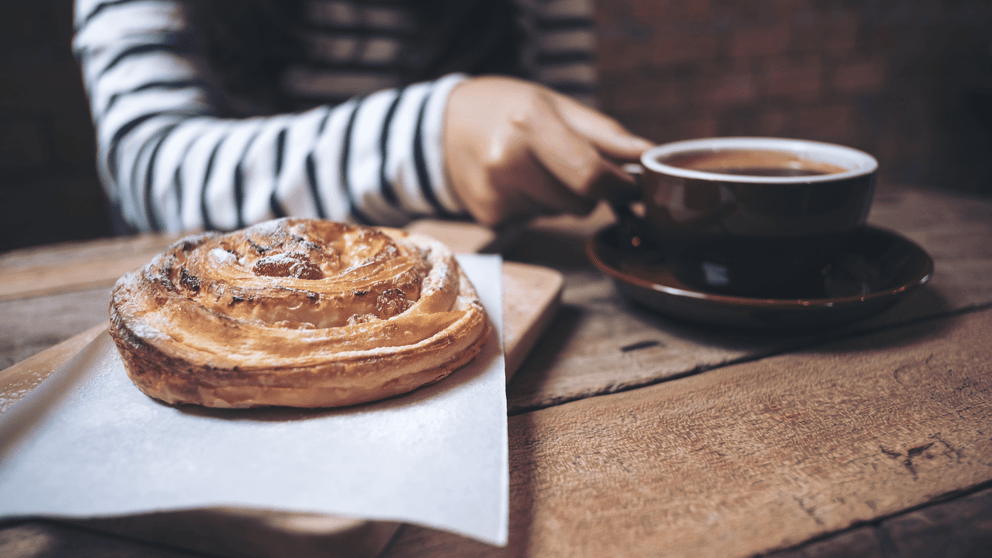
Tips for Creating Icelandic Coffee at Home
If you want to try to create the Icelandic coffee experience at home, there are a few key tips to follow. While you won’t be able to imitate every element exactly, following the same holistic approach to coffee as Icelanders go will get you nearly there.
- Follow the example of Icelandic roasters and cafes, and opt for light to medium roasted beans. Focus on Ethopian or Central American roasters for the best results, and choose ethically, sustainably sourced beans where possible.
- While you can’t use pure Icelandic water at home, you can use filtered or spring water to achieve a similarly clean taste.
- Try brewing methods like the French Press, Pour-Over, or Moka Pot, all of which are popular in Iceland.
- Choose high-quality, whole milk or a rich plant-based alternative. You can lightly heat your milk to make it next level, too!
- Pair with a delicious pastry, like a Danish or a donut for maximum enjoyment levels!
By immersing yourself in Iceland’s vibrant coffee culture, you’ll be able to not only enjoy some of the best coffee in the world, but also gain a deeper respect for the country’s traditions, history, and friendly spirit. If you’re planning to hit the road and sample coffee in towns and villages across Iceland, our rental cars will get you there safely!


